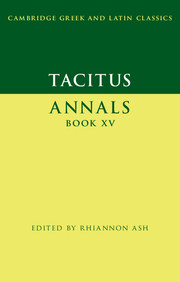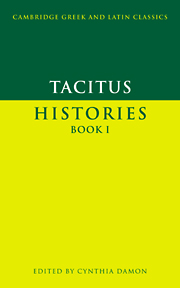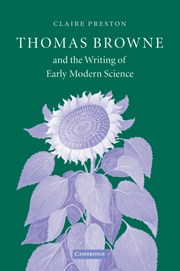Writing and Empire in Tacitus
Writing and Empire in Tacitus examines how Tacitus' historiographical career serves as an argument about his personal autonomy and social value under the peculiar political conditions of the early Roman Empire. Following the arc of his career from Agricola through Histories to Annals, this book focuses on ways in which Tacitus' writing makes implicit claims about his relationship to Roman society and about the political consequentiality of historical writing. In a sense, this book suggests, his literary career and the sense of alienation his works project form the ideal complement to his very successful political career, which, while desirable, might nonetheless give the impression of degrading submission to emperors. The discussion combines careful attention to the historian's explicit programmatic discussion of his work with larger-scale analysis of stretches of narrative that have unspoken but significant implications for how we view the function and importance of Tacitus' work.
- Was the first substantial study of how Tacitus' historiographical writings interact with his political biography, his literary career and his social self
- Offers an integrated analysis of the Agricola, Histories, and Annals
- All Greek and Latin in the text translated and/or explained
Product details
June 2011Paperback
9780521297141
372 pages
229 × 152 × 20 mm
0.5kg
Available
Table of Contents
- Introduction. A life, in fragments
- 1. Autonomy, authority, and representing the past under the Principate
- 2. Agricola and the crisis of representation
- 3. The burdens of Histories
- 4. 'Elsewhere than Rome'
- 5. Tacitus and Cremutius
- Conclusion. On knowing Tacitus.






